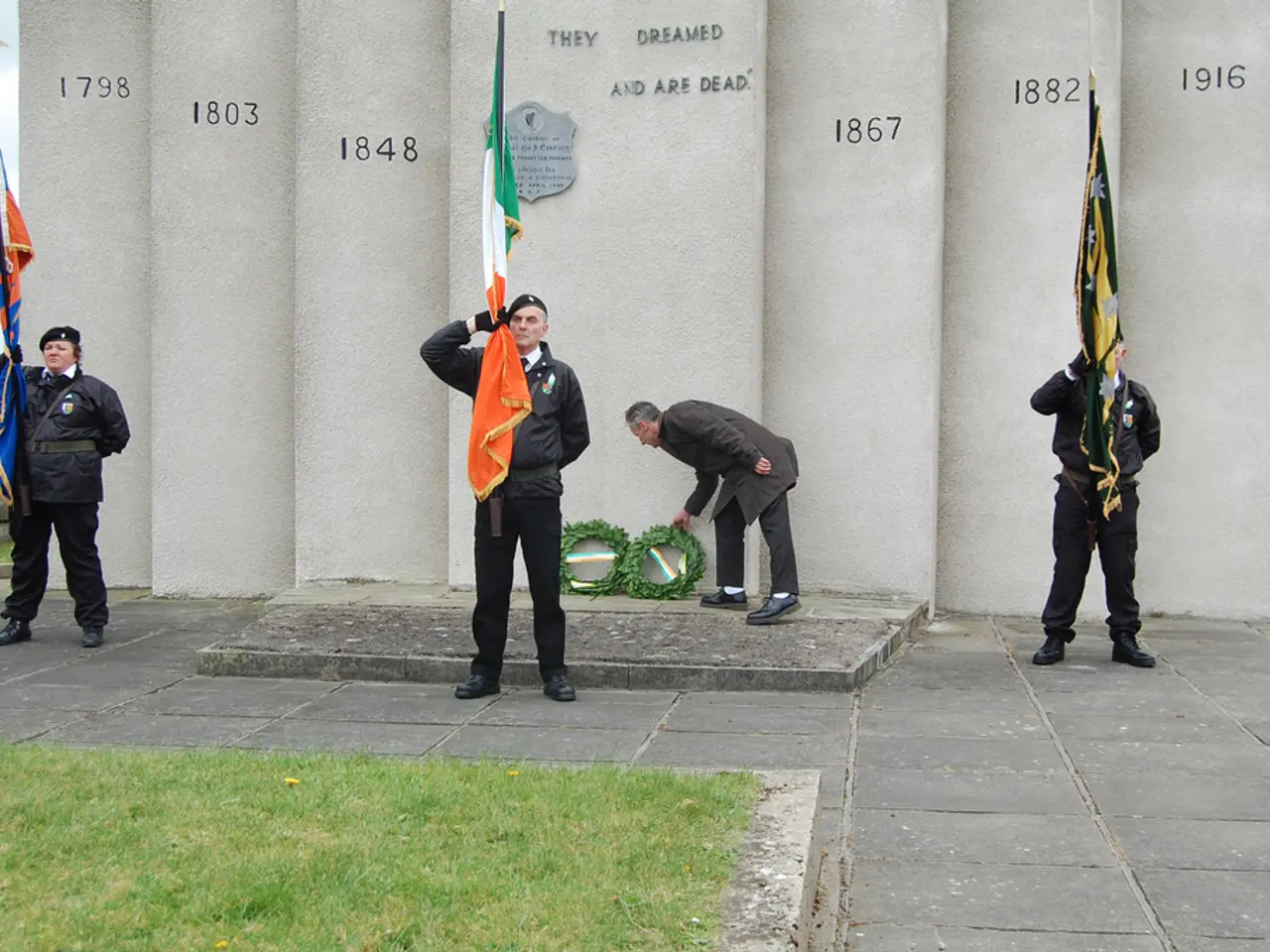Red Cross leader advocates for fair and impartial treatment
In an interview with the Funke media group newspapers, Gerda Hasselfeldt, the President of the German Red Cross (DRK) and a former CSU politician, has expressed her concern about the lack of legal protection for volunteers outside of the fire department and the Technical Relief Agency (THW) in Germany.
Hasselfeldt believes that volunteers are often the first to be present at incidents, and she has highlighted the fact that many of these volunteers have to sacrifice their vacation days for an incident. She argues that this should not continue and wants a regulation that applies both in case of incidents and outside a formal catastrophe.
According to Hasselfeldt, nine out of ten forces in civil protection work on a voluntary basis in Germany. While volunteers working for the fire department or the THW have uniformly regulated wage continuation and release from work, volunteers outside of these organisations do not have a legal right for wage continuation or work release under German labor law.
Volunteer programs like the European Solidarity Corps (ESC) provide financial allowances but are not employment and do not involve wage compensation by employers. ESC volunteers typically work up to 30-35 hours per week, receive an allowance (around 1000 EUR monthly), and have holiday entitlements, but are not formally employed. This means that their "release from work" depends on personal arrangements with their employers or by taking unpaid leave if applicable.
Hasselfeldt's proposed regulation would likely affect the social security of volunteers, as it would require employers to provide wage continuation and release from work during volunteer service. Aid organizations have long demanded equal treatment for helpers, and Hasselfeldt's call for a nationwide uniform regulation for volunteers, including for incidents, training, and social security, has garnered support from various quarters.
It is worth noting that the Technical Relief Agency has a separate federal law regulating the release of volunteers for incidents, exercises, and further training that occur during working hours. State laws also regulate the release of volunteers for the fire department.
In conclusion, wage continuation and release from work for volunteers outside the fire department and the THW depend largely on individual agreements rather than statutory mandates. Employees who want to volunteer should negotiate with their employer directly about time off, as there is no general legal obligation for wage continuation or release for volunteer activities outside the specific emergency services context. No new binding regulations appear in the current 2025 legal updates for this.
In light of Hasselfeldt's proposal, volunteers who work in areas outside the fire department and Technical Relief Agency could potentially gain legal protection in their wage continuation and work release, as science-based regulations might be implemented to ensure equal treatment for volunteers in various sectors. The health-and-wellness of volunteers could benefit significantly from such regulations, as they would no longer have to compromise their vacation days for incidents, thereby improving their work-life balance and overall well-being.




